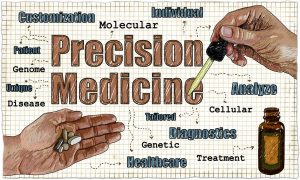Nursing is one of the most popular careers in the country, with more than 2.7 million people employed in the profession.
Part of the reason for this popularity is the fact that nurses can specialize in so many different areas. Nursing jobs can vary widely, from assisting doctors at a family practice to working in emergency rooms with trauma patients and more. But as technology has evolved over the years, so has the the field of nursing. One area particularly is health informatics which stemmed from the transition to electronic health and medical records.
Federal mandates that require healthcare providers to transition to electronic health and medical records has opened new doors for nurses. Nurses with an interest in technology and health data may want to consider a move into nursing informatics.
The role of a nursing informatics specialist is still relatively new, so the job definition may differ depending on the location and nature of the healthcare facility.
In general, however, the American Nurses Association defines the position as overseeing the integration of data, information and knowledge to support decision-making by patients and their healthcare providers.
Doing this requires keeping information technology systems as up-to-date as possible, and ensuring that all information is accessible to doctors, nurses, specialists and the patients themselves. For nurses with an interest in technology and its applications for improving patient care plans, a career in nursing informatics may be a good fit.
Seeing the need for education in this discipline, universities now offer both online and on-campus graduate degree and certificate programs in health informatics. Many schools now offer graduate level health informatics courses via distance learning or in traditional on-campus settings. The University of South Florida, for example, offers both a Master of Science in Health Informatics and a Graduate Certificate in Health Informatics through online courses.
Federal Law Requires Changes in How Nurses Keep Records
With the passage of the 2009 stimulus bill by Congress, the paper records systems used by healthcare providers for more than a century – and the system in which most nurses have been trained – started to come to an end. Part of that bill called upon medical providers to switch their healthcare records from paper to electronic medical records in order for a facility to continue receiving Medicaid and Medicare payments.
The benefits of electronic healthcare records are many. It makes patient information more quickly accessible by medical personnel, for example, and will streamline payment systems and transactions with insurance companies and government agencies. As of 2017, nearly 9 in 10 (86%) of office-based physicians had adopted HER with nearly 4 in 5 (80%) having adopted a certified EHR. according to the Office of the National Coordinator for Health Information Technology, which began tracking adoption of certified EHRs by office-based physicians in 2014.
Nursing Informatics Specialist Salary
The salary of a nursing informatics specialist will vary based on a number of factors such as physical location, education, the type of healthcare facility and the exact scope of the job. As this is an emerging field, the U.S. Department of Labor has not yet published salary data for this profession.
The HIMSS 2020 Nursing Informatics Workforce Survey, conducted by the Healthcare Information and Management Systems Society, found that 63% of respondents stated a base salary between $61,000 and $115,000.* While the survey was done in all regions of the U.S., personal research in your local market for the most accurate, up-to-date and complete information should be done.
Nurse Informatics Specialist Educational Requirements
To enter the field of health informatics, nurses typically need at least a bachelor’s degree in nursing and experience working with electronic healthcare records. However, the job is so specialized and focused that many employers prefer job applicants who have earned a Master’s degree in Health Informatics, Healthcare Management or Quality Management. Nurses who attain a degree in nursing administration with an emphasis on health informatics may also qualify for many jobs.
Courses in the USF programs include Integrated Electronic Health Records, Medicine Business Models, Managerial Communication, Basis Statistics and Clinical Systems Applications and Project Management.
Many employers prefer nurses for health informatics positions, because nurses have knowledge of the medical profession. It can be easier to train nurses on the technological aspects of the job rather than teaching someone with the technical skills all the details of the healthcare system.
Tips for Jumpstarting a Nurse Informatics Career
Nursing informatics jobs are becoming more abundant. Health informatics is a rapidly expanding career field. According to the American Medical Informatics Association (AMIA), around 70,000 specialists in this field will be needed within the next few years due to the impact that recent federal laws have had on the healthcare system – specifically the mandate for electronic medical records. For nurses seeking a different career path or wanting to specialize and have an interest in the field of information technology, health informatics is a path to consider.
Nurses who specialize in nursing informatics, a specialized field of the health informatics sector, will combine skills in health science, computer science and information technology to help healthcare providers store, retrieve and utilize large amounts of data as it applies to patient care.
Nursing informatics professionals also simplify documentation of patient care and enter patient notes using computers, mobile devices and voice recognition software. Nursing Informatics professionals aim to improve the accuracy of patient data and enable critical data analysis to improve efficiency of overall patient care.
Nursing is an honorable and still growing profession, but advancement in the field can sometimes be difficult. Here are a few critical guidelines to help you on your journey toward success as a nursing informatics professional.
Get Educated
A career in nursing informatics does not begin with an entry-level position. While many current nursing informatics professionals developed their careers through on-the-job training or continuing education, the growing complexity of the field has led to the requirement of advanced degrees and certificates.
Today, nurses who pursue careers in health informatics usually have a few years of job experience and are professionally educated in both nursing and some form of computer science. Ideally, nurses choosing to specialize in nursing informatics should begin by obtaining a Master of Science in Nursing (MSN) degree with a specialty in Informatics or a Master of Science in Health Informatics.
For those with full-time work schedules, many well-known and respected universities offer these degree programs online. Those who choose to pursue doctorates typically need to study on campus. Regardless of the path, nurses should enroll in a school that is a leader in medical technology research and high-quality education.
Build a Professional Network
Nurses should always build relationships with other nurses to stay current on industry trends and learn about job opportunities. Social media platforms, such as LinkedIn, should be used to grow one’s professional network. Nurses should also consider joining one or more LinkedIn groups tailored to nursing informatics, which could also provide industry news and help you meet specialists in the field.
In addition to online networking, check for local networking groups to join. Meeting other professionals in person can help foster closer relationships than those developed online. While taking classes, it is a great idea to begin building a personal network with fellow classmates and faculty.
After receiving an education and developing a professional network, most nurses will be equipped to pursue career opportunities in the field of health informatics. At that time, they should locate colleagues with careers in nursing informatics to learn where jobs are available and how to best obtain one in their local area. Use their advice, tailor your resume and ready yourself for your new role as a Nursing Informatics professional.
*National long-term projections may not reflect local and/or short-term economic or job conditions and do not guarantee actual job growth. Information provided is not intended to represent a complete list of hiring companies or job titles, and degree program options do not guarantee career or salary outcomes. Students should conduct independent research on specific employment information.




